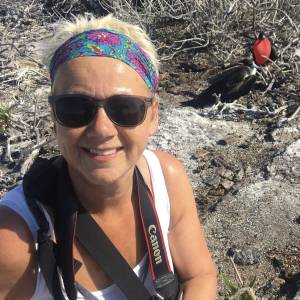Don McCullin
Yesterday’s Liverpool trip took in not one, but two exhibitions, if you can call the cathedral’s installations that - and thank you so much for your comments stars and hearts in response to my Peace Doves blip.
The second exhibition is Don McCullin at The Tate, and I feel each is too important not to have an entry - and besides, my depleted energy levels just couldn’t have compiled a double blip. So while this journal entry refers to yesterday’s event, the photos in my journal have taken of the expedition book today - they can’t come close to the originals, but it’s so hard to photograph glass-framed prints successfully.
This is a photographic tour de force, each glowing mono a perfect gelatin silver print produced by McCullin himself in his home darkroom especially for the exhibition. I fully expect to be impressed by what I see, but I really don’t think I am prepared for the full emotional hit.
Beginning his career in the early 60s, McCullen’s work seems to be a a role call of the seemingly unending moments of man’s inhumanity to man. As a child in the 60s, teenager and student in the 70s, these are the news stories I remember - and often the exact images too; though at home I’m afraid we were subject to the lesser journalism of The Sunday Express rather than The Observer and The Times where McCullen’s work could be found.
Berlin (where he went on gut instinct and at his own expense to capture images of the building of the wall as The Observer wasn’t interested) Cyprus, Congo, Biafra (Nigeria), Vietnam,, Cambodia, Bangladesh, Lebanon, Iraq ….. so many images of conflict, degradation, human misery. The haunted faces stare out at me, pulling me in. It’s almost unbearable to look, yet look you must, and I find myself standing there in tears. As McCullen said, ‘ Seeing, looking at what others cannot bear to see is what my life is all about.’
There’s so much to say about his sensitivity, his unwillingness to exploit, his utter respect for those he photographs. He loathes the moniker of ‘War Photographer’ seeing it as being akin to an abattoir worker. ‘I operate not as a photographer, but as a human being,’ he says - and it shows. As Susan Sontag said, ‘These images rightly haunt us and we should allow them to do so in order to remind ourselves of what human beings are capable of doing’. We can only wonder what his images of Afghanistan might bring…
And then the other thing I’m not expecting; McCullen’s war on poverty right here in the UK. Brought up in poverty himself, his photographs of London in the 60s are bleak. He shows as much moral outrage at poverty, homelessness and alienation as he does at war, and it’s his photographs of Liverpool and Bradford in the 1970s that really shock me.
His most recent works are landscapes. In Palmyra’s huge monuments to ancient powers, he sees not just beauty but the barbarism of exploitation. And even here the continued ugliness of (some) human nature underlies the set from ‘Southern Frontiers’ as these priceless treasures have now been destroyed by IS.
The final group consists of landscapes here at home - all taken in winter, beautiful but bleak and threatening. McCullen seems haunted by the past.
His photographs of India, however, have a lightness - here he has returned repeatedly , loving the country and its people. I find a photograph of the annual Pushkar Camel Fair taken in 2014, the year when we were there. It gives me a frisson of excitement that I might have been there photographing the same scenes as this brilliant artist - with very different results of course.
My main presents the cover of the exhibition book, the photograph being of Liverpool in the 60s. I’m tempted to use one of his more obviously distressing images, but feel they may be better in the extras.
Edit: Having been reminded of possible copyright issues, I’ve removed the extras, but the link below gives access to many of the images displayed, in this wonderful exhibition.
https://www.tate.org.uk/whats-on/tate-britain/exhibition/don-mccullin

Comments
Sign in or get an account to comment.


